As industries continue to evolve at an unprecedented pace, the integration of cutting-edge advancements has become a cornerstone of progress. Emerging technologies are not just trends—they are transformative forces shaping the future of business, manufacturing, and beyond. From artificial intelligence to autonomous systems, from biotechnology to renewable energy innovations, the landscape of modern industries is being redefine. In this comprehensive exploration, we delve into the latest technological breakthroughs impacting various sectors, uncovering how these developments are redefining traditional practices and fostering innovation. Whether you’re curious about the future of IT, eager to learn about groundbreaking manufacturing techniques, or interested in predicting the top technologies of tomorrow, this article offers a holistic view of the emerging tech trends that are revolutionizing industries worldwide. By examining the intersection of new technologies and their applications, we aim to provide insights into how these innovations are shaping a smarter, more efficient world.
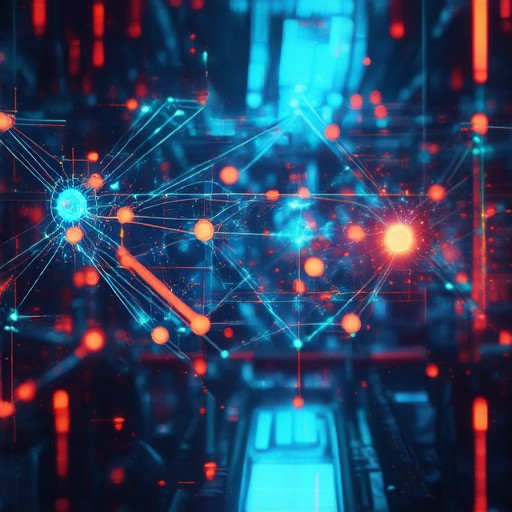
Latest Technologies in the IT Industry
The IT industry is constantly evolving, driven by innovations in artificial intelligence, cloud computing, cybersecurity, and more. Here are some of the most prominent technologies shaping the sector in 2025:
- Artificial Intelligence (AI): AI continues to revolutionize industries, with applications ranging from healthcare diagnostics to autonomous vehicles. Companies like Iterati are leveraging AI to optimize decision-making processes and enhance customer experiences.
- Quantum Computing: Quantum computers promise to solve complex problems exponentially faster than classical computers. While still in early adoption stages, quantum computing is expected to transform fields like cryptography and drug discovery.
- Blockchain Technology: Blockchain, known for its secure and decentralized nature, is being widely adopted in supply chain management, financial services, and digital identity verification. Platforms like Blockchain remain leaders in this space.
- Internet of Things (IoT): The proliferation of connected devices is driving advancements in smart homes, industrial automation, and healthcare monitoring. IoT security is now a critical focus area due to increasing vulnerabilities.
- Cloud Computing: Cloud services continue to dominate IT infrastructure, with major providers like AWS and Azure investing heavily in innovation and scalability.
- Cybersecurity: As cyber threats grow sophisticated, cybersecurity solutions are becoming a top priority. Companies specializing in threat detection and response, such as CrowdStrike , are leading the charge in protecting sensitive data.
- Augmented Reality (AR)/Virtual Reality (VR): AR and VR are transforming gaming, education, and training simulations. Meta (formerly Facebook) and Microsoft are pushing the boundaries of immersive experiences through their respective platforms.
- Edge Computing: Edge computing brings processing power closer to data sources, reducing latency and enabling real-time decision-making. This technology is particularly impactful in autonomous vehicles and robotics.
- 5G Networks: The rollout of 5G networks is enabling faster connectivity and supporting emerging technologies like autonomous vehicles and remote surgery. Mobile carriers like Verizon are at the forefront of this expansion.
- Web3 and Decentralized Applications: The concept of web3, built on blockchain technology, is gaining traction. Applications like Ethereum are redefining how businesses interact with their customers and manage transactions.
- Low-Code/No-Code Platforms: These platforms empower non-developers to create applications, accelerating digital transformation. Companies like OutSystems are leading the charge in democratizing app development.
These technologies are not just trends—they are driving transformative changes across industries, and companies like Iterati are at the forefront of harnessing them to deliver innovative solutions.
What Are the 6 Categories of Emerging Technology?
Here’s a breakdown of six key categories of emerging technology shaping the future:
- Artificial Intelligence (AI)
- Revolutionizing industries through machine learning, natural language processing, and automation.
- Applications in healthcare, finance, and autonomous systems.
- Examples: Chatbots, recommendation systems, and AI-driven decision-making tools.
-
Internet of Things (IoT)
- Integrating everyday objects and devices into the internet network.
- Enabling smart home devices, wearables, and industrial automation.
- Interconnected with AI and blockchain for enhanced functionality.
-
Virtual Reality (VR) and Augmented Reality (AR)
- Transforming experiences through immersive environments.
- Uses in gaming, education, and virtual simulations.
- AR enhances real-world interactions with digital overlays.
-
Autonomous Vehicles
- Self-driving cars and delivery drones changing transportation logistics.
- Focus on safety, navigation, and integration with smart cities.
- Future potential for shared mobility and public transit solutions.
-
Smart Cities
- Urban development leveraging IoT, AI, and big data.
- Improving transportation, energy efficiency, and public services.
- Enhancing citizen engagement through mobile apps and data analytics.
-
Clean Energy Technologies
- Innovations in renewable energy sources like solar and wind power.
- Advancements in battery storage and hydrogen fuel cells.
- Promoting sustainability and reducing carbon footprints globally.
These technologies are driving progress across industries, fostering innovation, and improving daily life.
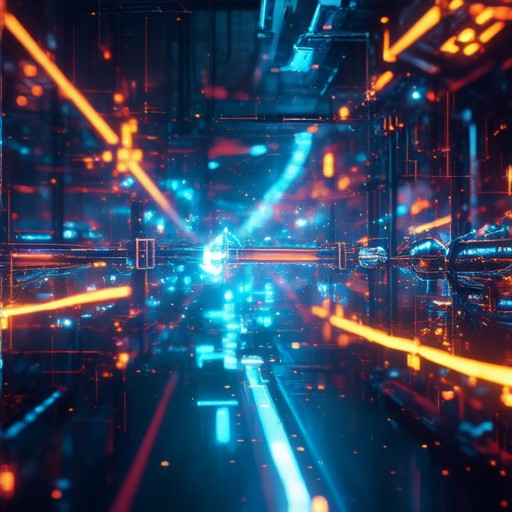
What is the New Technology in the Manufacturing Industry?
The manufacturing industry is undergoing a transformative phase driven by cutting-edge technologies that are reshaping traditional workflows and productivity levels. These innovations are not only enhancing efficiency but also paving the way for smarter, more sustainable production processes.
1. Industry 4.0 and Beyond
At the core of this transformation is Industry 4.0, also known as the Fourth Industrial Revolution. This phase integrates advanced technologies such as:
- Internet of Things (IoT) – enabling real-time monitoring and connectivity across manufacturing systems
- Artificial Intelligence (AI) – optimizing operations through predictive analytics and machine learning
- Cloud Computing – facilitating data storage, analysis, and sharing across global networks
- Cybersecurity – protecting sensitive data and ensuring secure communication channels
2. Additive Manufacturing (3D Printing)
Additive manufacturing is revolutionizing product design and production by allowing complex shapes to be created quickly and cost-effectively. This technology enables custom parts production, reducing waste, and accelerating innovation.
3. Robotics and Automation
Robots are becoming integral to manufacturing processes, performing tasks ranging from assembly line operations to quality control. Advanced automation tools are streamlining operations, reducing human error, and boosting productivity.
4. Sustainable Manufacturing Practices
Environmental responsibility is now a key focus for manufacturers. Technologies like energy-efficient machinery and closed-loop systems are helping industries adopt greener practices, aligning with global sustainability goals.
5. Digital Twin Technology
Digital twins simulate physical processes in real-time, enabling manufacturers to predict and mitigate issues before they occur. This technology enhances decision-making and optimizes resource utilization.
6. Collaborative robots (Cobots)
Cobots are collaborative robots designed to work alongside human operators, enhancing flexibility and productivity in manufacturing environments. They are particularly impactful in industries like automotive and electronics.
These technologies are not just trends—they are driving the future of manufacturing. Companies like ABB , Siemens , and Emerson are leading the charge, integrating these innovations to deliver smarter, more efficient solutions.
By embracing these advancements, manufacturers can position themselves as leaders in innovation, ensuring long-term success in an increasingly competitive global market.
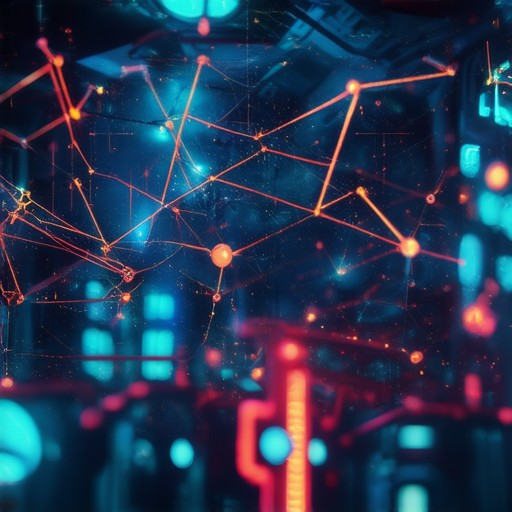
Top 13 Emerging Technologies
The technology landscape is constantly evolving, and staying ahead requires knowledge of the most innovative developments. Here are the top 13 emerging technologies shaping our future:
-
AI-Powered Robotics
Advanced robotics powered by artificial intelligence are revolutionizing manufacturing, healthcare, and logistics. These systems can perform tasks with precision and adaptability, reducing human error and increasing efficiency.
-
Quantum Computing
Quantum computing promises to solve complex problems exponentially faster than classical computers. Its applications span cryptography, drug discovery, and optimization, potentially transforming industries.
-
Neural Interface Systems
Neural interfaces allow direct communication between the brain and computers, enabling control of devices with thoughts. This technology holds promise for treating neurological disorders and enhancing human-computer interaction.
-
Sustainable Energy Storage
Breakthroughs in battery technology, particularly solid-state batteries, are addressing key challenges in renewable energy storage. These innovations could significantly reduce costs and environmental impact.
-
Bioprinting
Bioprinting, or extrusion-based additive manufacturing, enables the creation of complex biological structures layer by layer. This technology has applications in tissue engineering and personalized medicine.
-
Smart Materials
Smart materials, such as shape-memory polymers and self-healing composites, are being integrated into various products. These materials adapt to their environment, offering unprecedented durability and responsiveness.
-
Space Exploration Technologies
Private companies are developing reusable rockets and advanced propulsion systems, aiming to make space travel more accessible and sustainable. This includes lunar missions and Mars exploration.
-
Virtual Reality (VR) and Augmented Reality (AR)
VR and AR technologies continue to advance, providing immersive experiences for gaming, education, and training. These platforms are increasingly being used in healthcare and entertainment.
-
Blockchain for Supply Chain
Blockchain technology is being leveraged to enhance supply chain transparency and security. By providing a decentralized and immutable record, it ensures authenticity and reduces fraud.
-
Clean Energy Harvesting
Efficient energy harvesting from ambient sources like solar panels and piezoelectric materials is becoming more viable. These technologies can power devices without the need for frequent recharging.
-
Autonomous Vehicles
Autonomous vehicles are moving closer to mainstream adoption, with ongoing advancements in AI, sensors, and navigation systems. These vehicles aim to improve safety and reduce traffic congestion.
-
Gene Editing and CRISPR
CRISPR-Cas9 gene editing technology is revolutionizing medical research and treatment. It allows for precise modifications to DNA, offering potential cures for genetic diseases and improved agricultural techniques.
These emerging technologies are driving innovation across various sectors, from healthcare to transportation. Staying informed about these advancements can help you stay ahead in a rapidly changing world.
What is the New Technology in 2025?
In 2025, technological advancements are expected to revolutionize various industries, driven by innovation and scientific breakthroughs. Here are some emerging technologies poised to make significant impacts:
- Quantum Computing: Quantum computers promise to solve complex problems exponentially faster than classical computers. By 2025, quantum supremacy may become more accessible, enabling breakthroughs in fields like drug discovery, financial modeling, and optimization.
- Advanced Robotics: Robotic systems integrated with artificial intelligence will become more versatile, capable of performing tasks requiring both physical manipulation and decision-making. This will enhance applications in manufacturing, healthcare, and logistics.
- Autonomous Systems: Autonomous vehicles and drones will continue to evolve, reducing reliance on human operators. These systems will leverage improved AI and sensor technology to operate more efficiently and safely in diverse environments.
- Green Technologies: Renewable energy storage solutions and carbon capture systems are expected to advance significantly. Technologies like solid-state batteries and advanced solar panels will enhance sustainability efforts globally.
These innovations highlight the transformative potential of 2025 technology, shaping the future of industries and everyday life.
For more insights into these advancements, explore our Technology Trends section and stay updated on the latest developments.
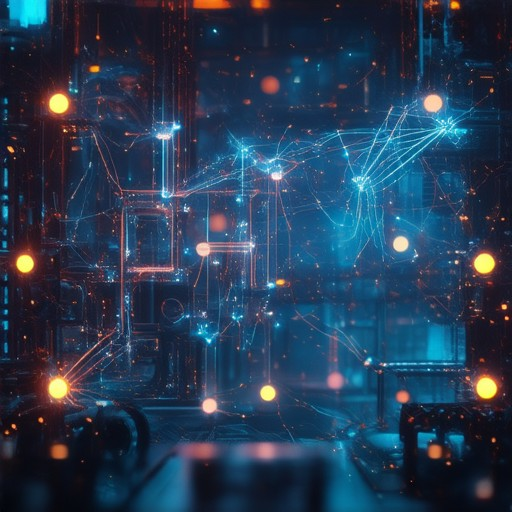
Exploring Emerging Technologies of 2030
The year 2030 promises to bring groundbreaking advancements in various fields, driven by ongoing innovations and scientific progress. Here are some key technologies expected to emerge or become mainstream by that time:
Artificial Intelligence and Machine Learning
AI will continue its rapid evolution, leading to smarter systems capable of solving complex problems autonomously. Applications in healthcare, finance, and transportation will see significant improvements, with AI-driven diagnostics and personalized treatment plans becoming the norm.
Augmented Reality and Virtual Reality
AR and VR technologies will advance, offering immersive experiences for education, gaming, and remote work. Virtual meetings using AR/VR devices will allow participants to interact as if they’re in the same room, revolutionizing collaboration and communication.
Renewable Energy Innovations
With global efforts to combat climate change, renewable energy sources like solar, wind, and hydrogen will dominate energy production. New battery storage technologies and efficient energy conversion systems will make clean energy more accessible and reliable.
Smart Cities and Urban Mobility
Cities will become smarter, integrating IoT (Internet of Things) for better traffic management, waste reduction, and energy efficiency. Autonomous vehicles will likely be a common sight, reducing congestion and accidents on the roads.
Advancements in Healthcare
Personalized medicine will take center stage, leveraging genetic research and AI to tailor treatments to individual patients. Telemedicine will become the standard for accessing healthcare, making it more convenient and accessible worldwide.
Sustainable Agriculture and Food Technology
Vertical farming and lab-grown meat will gain traction as solutions to global food shortages and environmental concerns. These technologies aim to reduce reliance on traditional farming methods while producing healthier, more sustainable food options.
Green Energy Storage and Distribution
Energy storage solutions like solid-state batteries and advanced grid systems will enhance the reliability of renewable energy sources. Smart grids will manage energy distribution more efficiently, ensuring stability and reducing waste.
Space Exploration and Colonization
Space travel will become more feasible and affordable, with private companies leading the way. Lunar and Martian colonies will be a reality, supported by advancements in spacecraft design and materials science.
Robotics and Autonomous Systems
Robots will play a larger role in manufacturing, logistics, and healthcare, performing tasks with greater autonomy and precision. Collaborative robots (cobots) will enhance productivity in industries while ensuring safety in hazardous environments.
Advanced Materials Science
New materials, such as carbon nanotubes and self-healing polymers, will find applications in construction, electronics, and automotive industries. These materials will improve durability, reduce weight, and enable innovative designs.
Biotechnology Breakthroughs
CRISPR-Cas9 and other gene-editing technologies will unlock new possibilities in disease prevention and treatment. Synthetic biology will open doors to custom-designed organisms with tailored functions for industrial and medical uses.
Connectivity and the Internet of Things
The Internet of Things (IoT) will be more integrated into everyday life, enabling smart homes, wearables, and connected devices. IoT systems will optimize resource usage, improve safety, and enhance user experiences across various sectors.
Education and Workforce Development
Virtual and augmented reality classrooms will transform education, offering immersive learning experiences. Companies will invest in upskilling their workforce to adapt to new technologies, ensuring employees remain competitive in a rapidly changing job market.
Conclusion
By 2030, the world will witness a transformative era driven by cutting-edge technologies across industries. These innovations will not only shape our daily lives but also redefine global challenges and opportunities. Staying informed and adaptable will be crucial for anyone looking to thrive in this exciting future.
For more insights into upcoming trends and innovations, visit Iterati and explore their comprehensive coverage of technology advancements.

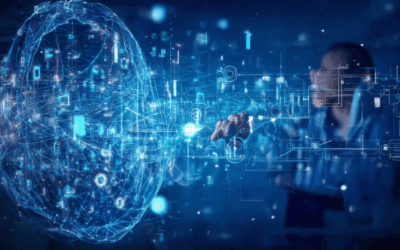
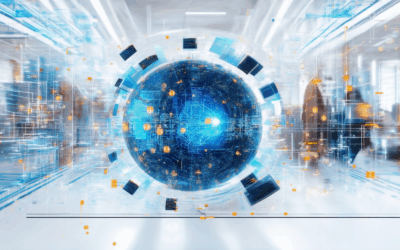
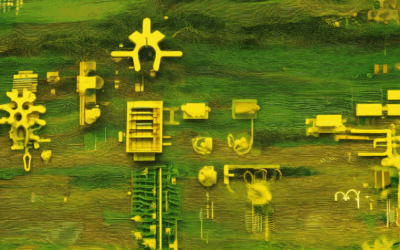
0 Comments